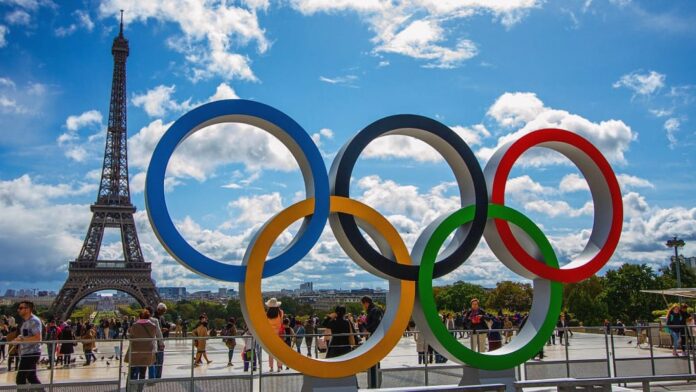
Russia’s war on Ukraine has inflamed the Games. The International Olympic Committee (IOC) sparked more intense discussion on the effect of boycotting the Games with its suggestion that Russian and Belarusian athletes might participate in the 2024 Olympics in Paris as neutral individuals, with no identification by country, no flags or national anthems. The IOC stated that athletes should not be discriminated against on the basis of their passports and suggested rigorous conditions governing the entry of athletes of aggressive countries, one being to condemn the war.
In early February, Ukraine’s sports minister Vadym Guttsait renewed the country’s threat to boycott the Paris Olympics if Russian and Belarusian athletes are allowed to compete, and said his country would continue to encourage allies to add weight to a threat that represents a serious crisis for the Olympic movement. He said that Ukrainians “did not want to see or meet” Russian and Belarusian athletes in international sports competitions, including the Olympics, as long as the war continued.
Ukrainian officials reaction to the IOC’s proposal has received support from some of Ukraine’s neighbours as well as allies in Western Europe. Poland’s sports minister said that he expects to assemble a coalition of as many as 40 countries to reject the idea of allowing athletes from Russia and Belarus to compete at the Paris Games.
Ukraine’s threat is a crisis for the Olympic movement ahead of the qualification period for the Games. The organization for Olympic sports in Asia has said it would consider hosting Russian athletes in qualification competitions there amid continued opposition in Europe, even as its own members have expressed concern about the idea, uncertain if it would take Olympic places away from Asian athletes. And the crisis this week led the IOC to issue unusual public rebukes to both Russia and Ukraine. The IOC reminded Russia’s top Olympic official, who had suggested that his country’s athletes should not be subjected to different rules, that the sanctions currently in place were “not negotiable”, and later scolded Ukrainian Olympic officials, saying it was “extremely regretful to escalate this discussion with a threat of a boycott at this premature stage.”
Last week the head of the Paris Olympics organizing committee, Tony Estanguet, expressed support for the IOC position, saying individual athletes were “not involved at all in these decisions right now and, personally, I think they shouldn’t suffer the consequences of decisions that don’t concern them.” The mayor of Paris, Anne Hidalgo, changed her previous position, saying that “For as long as this war goes on, this Russian aggression on Ukraine, it’s not possible to parade as if nothing was happening, to have a delegation arriving in Paris, while bombs are raining on Ukraine”.
The New York Times reminded readers that the latest proposal to accommodate Russia and its athletes is in keeping with the IOC’s treatment of Russia in the aftermath of revelations that it had corrupted several Olympics and world championships with a state-backed doping program involving thousands of athletes. Having initially threatened the most severe sanctions, the IOC eventually backed down, allowing Russian athletes and teams to take part in recent Summer and Winter Olympics ostensibly as neutrals.
Admission of Russian and Belarusian athletes to the Olympics in any form is being strongly opposed by Lithuania, Estonia, Latvia and Poland as well as the Nordic countries. Latvian Olympic Committee president Žoržs Tikmers has stated that under the current situation, if Russians and Belarusians are admitted to the Olympic games, the Latvians will not participate.
Members of the Athletes’ Commission of the National Olympic Committee of Lithuania (LNOC) have appealed to the international sports community – the International Sports Federations, the International Olympic Committee (IOC) and the National Olympic Committees (NOCs) – to preserve the sanctions on Russian and Belarusian athletes.
LNOC president Daina Gudzinevičiūtė noted that in the event of a boycott, both the country’s National Olympic Committee and its athletes would be subject to the sanctions outlined in the Olympic Charter, which obligates every NOC to participate in the Olympics. Sanctions include loss of all rights and privileges, meaning – suspension. Some countries, including the US, have boycotted the Olympics in the past, yet were not suspended. This year, it might depend on how many countries decide to boycott and what the situation is at the time.



























